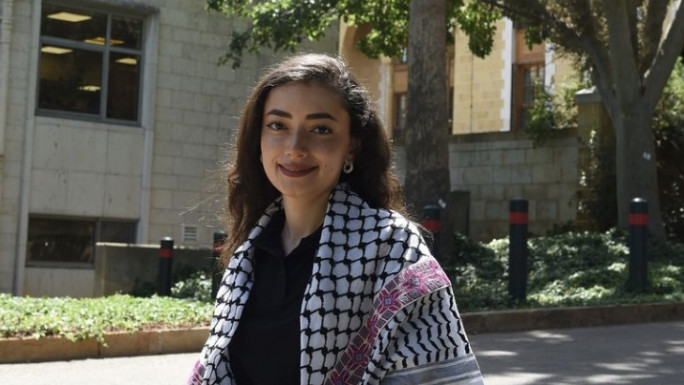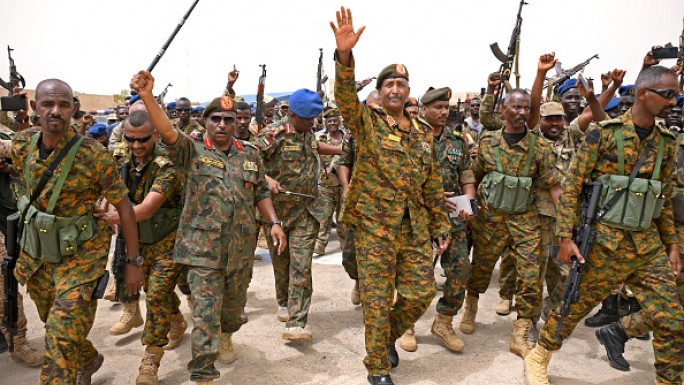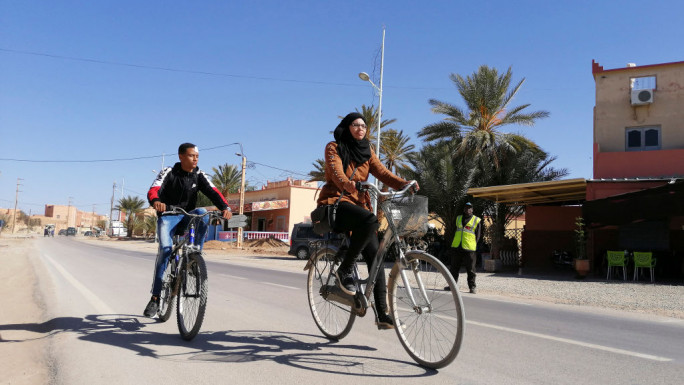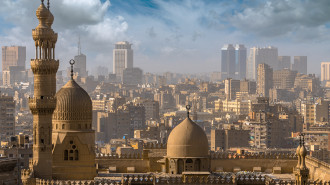
After first confirmed polio case in 25 years, massive vaccination efforts kick off in Gaza

Adly Abu Taha, with his son Zain in tow, arrived at the Nasser Medical Complex in Khan Younis on Saturday to be among the first to vaccinate their children against polio in the Gaza Strip.
The virus, eradicated in Gaza for 25 years, has resurfaced due to the destruction from Israel's war, which has severely limited access to clean water and sewage systems, increasing the risk of infectious diseases amid widespread displacement.
Dozens of parents flocked to the Nasser Medical Complex for the launch of an emergency vaccination campaign that officially began on Sunday and is spearheaded by the Gaza Health Ministry, the World Health Organization (WHO), UNICEF, and UNRWA.
Adly Abu Taha, displaced from Rafah since early May, had moved through several temporary shelters in al-Mawasi before ending up in the war-ravaged city of Khan Younis.
Driven by fears of potential Israeli military incursions or further displacement and determined to get his 11-month-old son vaccinated ahead of schedule, he chose to act early, despite the official vaccination date being four days away.
“Like many others in Gaza, we were apprehensive following the recent announcement of a polio case. I fear my children might be infected,” Adly tells The New Arab.
Despite the polio vaccination awareness campaign, he worried that families might face difficulties getting their children to vaccination sites because of the ongoing war and destruction.
“I’ve read about factors contributing to the spread of polio, and our daily living conditions fit these factors,” he said. “Zein missed his previous shot, and we promised to not let this happen again.”
On September 1, one-year-old Abdul Rahman Abu al-Jidyan became the first child in Gaza to be diagnosed with polio. His condition rapidly deteriorated, causing him to lose the ability to move as he once could, despite previously being able to crawl.
After three weeks in the hospital, his diagnosis was confirmed through samples obtained by the WHO and analysed in Jordan.
His mother, Nivine Abu al-Jidyan, had fled with her husband and their nine children from Jabalia in northern Gaza. The family ended up in a refugee camp in Deir al-Balah, facing dire living conditions, which included unsanitary waste disposal and a lack of personal and public hygiene.
She recalled that in August, her son's fever escalated, and he began vomiting, showing severe fatigue. He was later hospitalised and eventually diagnosed with polio.
“I see other children crawling and walking, while my son has become almost a lifeless body, and there’s nothing I can do for him. Our living conditions are abysmal,” she told The New Arab.
“We maintain any sanitary conditions no matter how hard we try; we live in a tent next to sewage and trash everywhere. My husband is unemployed, and I can’t even afford food or supplements for my other children.”
Nivine was also heartbroken that the ongoing war and displacement prevented her from getting her son vaccinated on schedule, missing polio shots in his first week, fourth month, and sixth month.
Aside from administering vaccines to her children after her son’s diagnosis was confirmed, organisations like the World Health Organization (WHO), UNICEF, and UNRWA had not reached out, she added.
“My children need supplies, clothing, blankets, healthy food, and clean drinking water — all of which are unavailable, and we cannot afford them,” Nivine said, urging the international community to provide treatment for her son, either within Gaza or abroad.
Target surpassed
The first day of the vaccination campaign in central Gaza saw a strong turnout from Palestinian families who arrived early at designated vaccination points, with extensive participation from various Palestinian and international teams.
The campaign is being conducted at 700 previously announced locations to ensure access for Palestinians across various regions.
The number of sites has increased in major displacement areas such as Deir al-Balah and al-Mawasi, as well as in regions where displaced people have recently returned, including the war-torn Khan Younis.
Magdi Dhair, the head of the technical committee for the emergency polio vaccination campaign in Gaza, told The New Arab that the campaign was launched in response to the detection of a type 2 poliovirus in sewage water and after a confirmed case of polio in one child.
WHO reported on Tuesday that 161,000 children in Gaza received polio vaccinations over two days, exceeding their target of 156,500.
WHO spokesperson Richard Peeperkorn shared preliminary data at a UN briefing in Geneva, stating that 74,340 children were vaccinated on the second day, following over 86,600 on the first day.
“Scientifically, this indicates that Gaza is facing an outbreak, and vaccinating the most vulnerable group — children — is the only available means to combat the disease and restore Gaza to its polio-free status,” he said.
Magdi also noted that the vaccination campaign will be conducted in two phases: the first phase will continue until September 12 and the second phase will begin on September 17 for the same children who participated in the first phase, following the same procedures with 2,700 professionals and volunteers, including vaccinators, supervisors, administrators, and statisticians across Gaza.
“The vaccination targets children from one day old up to 10 years old, with an estimated 640,000 to 660,000 children. We have received 1.2 million doses of the vaccine, and we are awaiting a second shipment of 400,000 doses to ensure the campaign's success,” he said.
“We must vaccinate over 90 percent of the target group to ensure the campaign's success. Anything less could jeopardise the whole effort.”
Magdi acknowledged the difficulties and challenges imposed on civilians because of the war but stressed that all Gazans are responsible for making this campaign successful by any means necessary, “regardless of the risks and difficulties.”
“There is a contingency plan and additional teams on standby that can be deployed if the current efforts face any difficulties,” he added.
An inevitable outbreak
Abdul Raouf al-Manaama, a professor of microbiology at the Islamic University of Gaza, confirmed that the vaccine used in Gaza has undergone standard global safety procedures, especially by WHO and other organisations, ensuring its safety for users.
“The strain that was recently isolated and discovered is different from previous strains, requiring a new and different vaccine. Additionally, the nearly year-long war has deprived many children born during this time of their scheduled vaccinations,” he explained.
“These doses are intended to stimulate the immune system, creating an immune memory against the disease. This is a well-established process, and it's not something new. The same vaccine has been used for many years and is safe.”
The professor attributed the emergence of the poliovirus, which spreads through contaminated water and food containing infected human faeces, to the war conditions that deprived residents of a safe sewage system, access to clean and uncontaminated drinking water, and proper personal and public hygiene.
“The weakened immunity among Gazans, due to the war, blockade, malnutrition, and its many manifestations, combined with poor mental health, makes the spread of diseases, including polio, inevitable in the community,” he said.
Mohamed Solaimane is a Gaza-based journalist with bylines in regional and international outlets, focusing on humanitarian and environmental issues
This piece was published in collaboration with Egab


![Palestine sat next to member states at the United Nations General Assembly on Tuesday [GETTY]](/sites/default/files/styles/image_684x385/public/1441455581.jpeg?h=199d8c1f&itok=CgJaFY6v)





